ICC: Sudan janjaweed leader Ali Kushayb guilty on 27 counts of war crimes and crimes against humanity
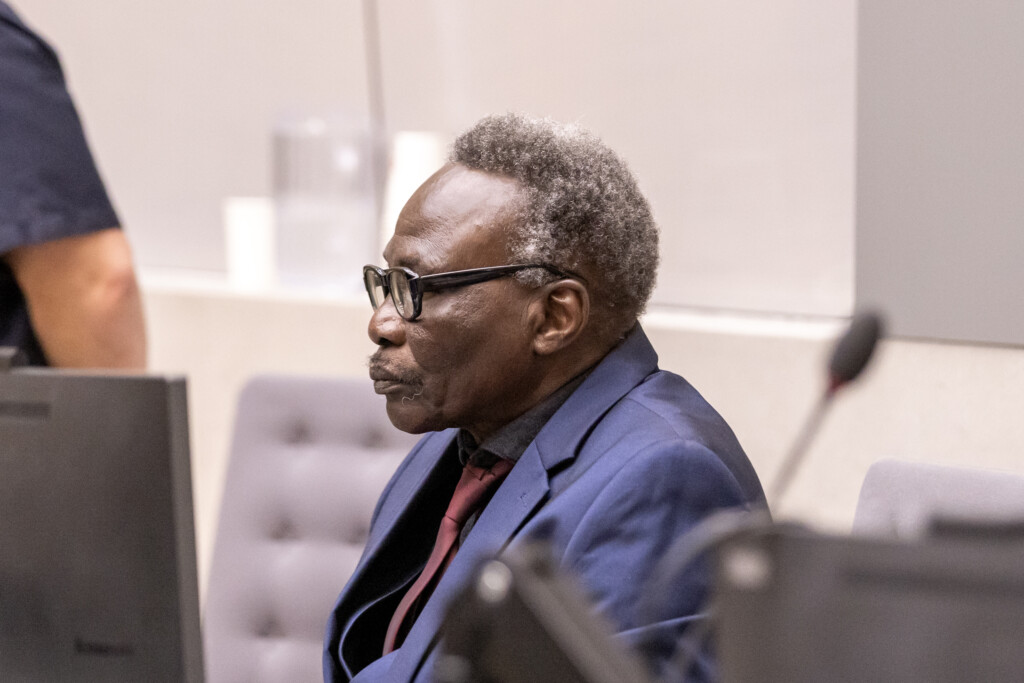
Ali Muhammad Ali Abdelrahman, known as ‘Ali Kushayb’ and referred to as the ‘Colonel of Colonels’ hears the judgement and conviction in his case at the ICC in The Hague) Photo: ICC
The Trial Chamber of the International Criminal Court (ICC) in The Hague, today convicted Ali Muhammad Ali Abdelrahman, known as ‘Ali Kushayb’ and referred to as the ‘Colonel of Colonels’, on 27 counts of war crimes and crimes against humanity in Darfur, between August 2003 and April 2004 “beyond reasonable doubt”.
In a summary of the court’s judgment delivered to a packed courtroom and public gallery in The Hague this afternoon, presiding Judge Joanna Korner said that Kushayb’s crimes are undisputed, and cited harrowing testimony of several witnesses, who gave accounts of a litany abuses, mass murders, torture, rape and gender-based violence, and forced displacements perpetrated on men, women, and children. Judge Korner underlined that the court rejected Kushayb’s main defence of ‘mistaken identity’ that he has maintained during the trial.
Kushayb, who appeared in a dark suit and remained hunched over his table for most of the proceedings, only stood on the orders of Judge Korner to hear her pronounce the verdict against him, and showed little reaction.
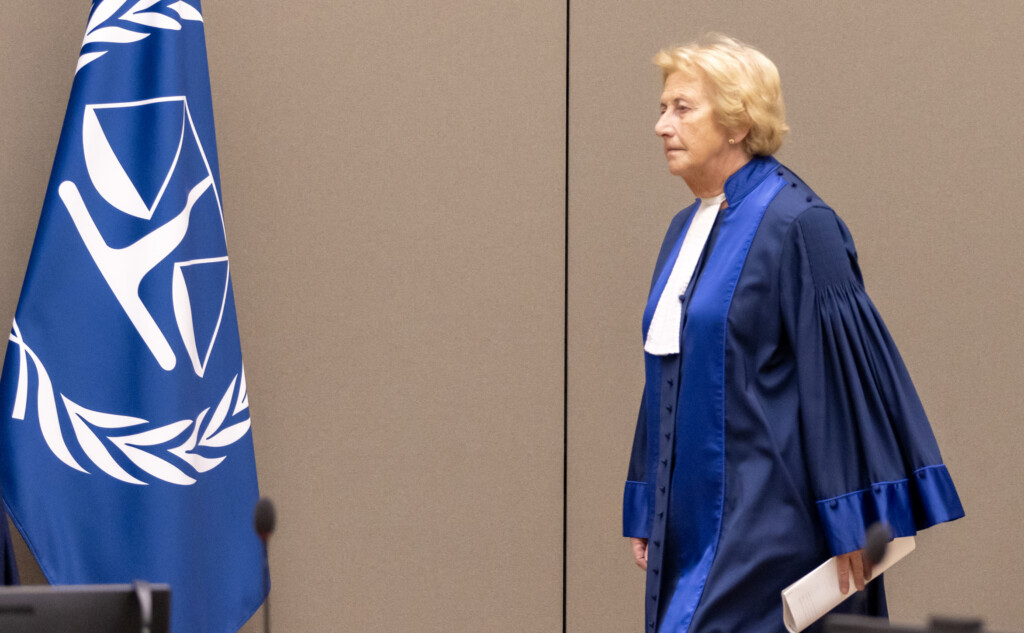
Judge Korner convicted Kushayb as a direct perpetrator for murder and torture as crimes against humanity and war crimes, as well as outrages upon personal dignity as a war crime and persecution as a crime against humanity.
It is noteworthy that rather than only ordering the atrocities, witness testimony confirmed that Kushayb, who had a penchant for carrying an axe, personally bludgeoned some victims to death.
He is also convicted as a co-perpetrator, for the joint commission with Janjaweed and/or Government of Sudan Forces, in relation to at least 200 captives and/or detainees during the Mukjar and Deleig Operations, of murder, attempt murder and torture as war crimes and crimes against humanity, outrages upon personal dignity as a war crime, and persecution as a crime against humanity.
He is also convicted for ordering the Janjaweed to commit, during the Kodoom (Kutum) and Bindisi Operation, murder and rape as war crimes and crimes against humanity, attack against a civilian population, outrages upon personal dignity, pillaging and destroying the enemy’s property as war crimes; and forcible transfer of population, persecution and other inhuman acts as crimes against humanity, Judge Korner said.
The Prosecutor had brought four other counts of crimes against humanity and war crimes against Mr Abd-Al-Rahman but the Chamber did not enter a conviction on these counts considering that the criminal conducts underlying these counts were already covered by other counts for which a conviction was pronounced.
The judgment is subject to appeal and the court will pass sentence on Ali Kushayb at a later date. In the meantime, he will remain at the ICC detention centre in Scheveningen, where he has been held since his arrest.
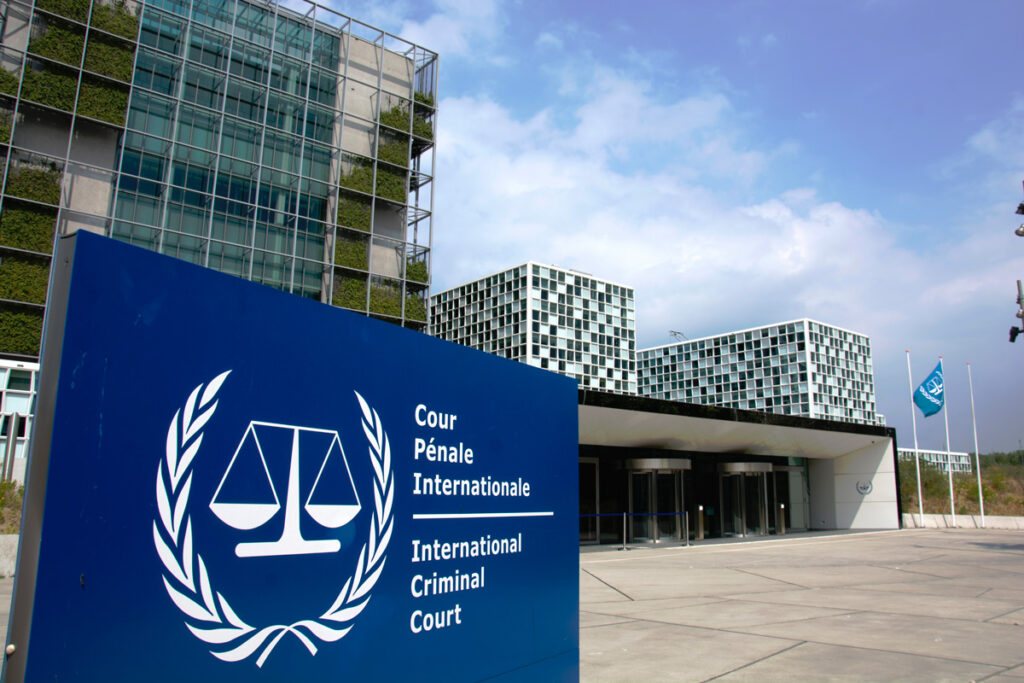
Prosecutor welcomes guilty verdict
In a statement following the hearing, the Office of the Prosecutor of the International Criminal Court welcomed today’s ‘historic conviction’, pointing out that this is the first conviction in the Situation in Darfur, Sudan, and the first in a situation that the UN Security Council referred to the Court. The case also represents the first conviction for gender-based persecution at the Court.
“The conviction of Mr Abd-Al-Rahman is a crucial step towards closing the impunity gap in Darfur. It sends a resounding message to perpetrators of atrocities in Sudan, both past and present, that justice will prevail, and that they will be held accountable for inflicting unspeakable suffering on Darfuri civilians, men, women and children,” said Deputy Prosecutor Nazhat Shameem Khan.
“The judges’ decision is a tribute to the bravery of many thousands of Darfuri victims, who hoped and fought for justice through the years. Upholding the laws of armed conflict, the judgment affirms the fundamental value and dignity of the lives of the Darfuri people,” Deputy Prosecutor Khan added.
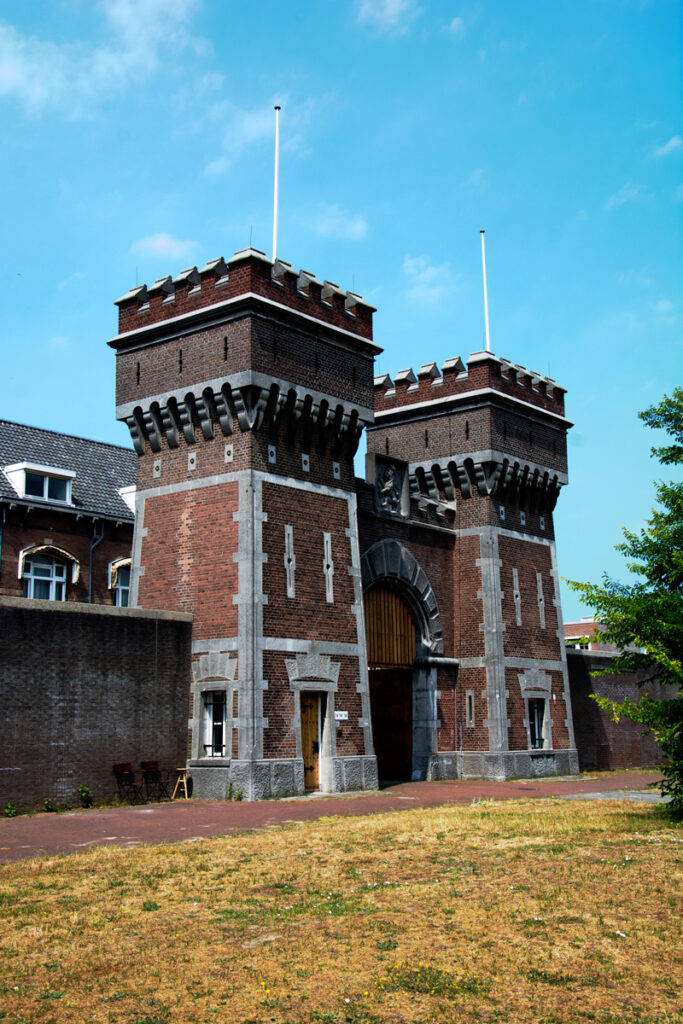
UN High Commissioner for Human Rights
In a statement following the judgement, UN High Commissioner for Human Rights Volker Türk welcomed the ICC’s verdicts.
“The convictions of Ali Kushayb represent an important acknowledgment of the enormous suffering endured by the victims of his heinous crimes, as well as a first measure of long overdue redress for them, and their loved ones.” said Türk.
He paid tribute to the “victims who courageously shared their accounts of harrowing and life-altering loss and suffering, hoping against hope that one day accountability would reach their once seemingly untouchable tormentors.”
“It is my earnest hope that today’s verdict will serve as a fresh reminder to the perpetrators of today’s crimes that there can be no impunity for mass crimes against civilians; a reminder that they too will be brought to justice one day for grave violations of the law,” said the High Commissioner.
He said the verdicts confirm the ICC’s continuing importance as a court of last resort, a bulwark against impunity where there is no prospect for accountability at the national level.
Background
Kushayb was arrested in the Central African Republic (CAR) and transferred to ICC custody in 2020, has been on trial for 31 counts of war crimes and crimes against humanity, allegedly committed between 2003 and at least 2004, and has since been held at the ICC detention centre in nearby Scheveningen.
In the case of The Prosecutor v. Ali Muhammad Ali Abd-Al-Rahman (“Ali Kushayb”), the judgement delivered this afternoon by Trial Chamber I, composed of Judge Joanna Korner (Presiding), Judge Reine Alapini-Gansou, and Judge Althea Violet Alexis-Windsor, finds the former Darfur janjaweed leader guilty/not guilty on 27 of the 31 charges against him, at the culmination of more than five years of legal and trial proceedings.
Charges
On June 11, 2020, Pre-Trial Chamber II of the ICC reclassified as public, with redactions, a second warrant of arrest against Kushayb. An ICC statement explained that the second arrest warrant was initially issued as secret on January 16, 2018. It adds three new charges of war crimes (murder) and crimes against humanity (murder and other inhumane acts) allegedly committed in Deleig and surrounding areas between March 5 and 7, 2004.
In a press statement following Kushayb’s first court appearance, the ICC explained that the case against Kushayb (Abdelrahman) was severed from the case of Ahmad Haroun, as Haroun has not yet been surrendered to the court. “This is done with a view to protecting Mr Abdelrahman’s right to fair and expeditious proceedings and in the interest of judicial economy.”
‘Mistaken identity’
Kushayb made his first court appearance via video link from the ICC detention centre in nearby Scheveningen on June 15, 2020, to verify his identity. He was also informed of the charges against him. His defence is largely based on alleged mistaken identity. At the time, he insisted: “My name is not Kushayb. My name is Ali Muhammad Abdelrahman.”
On August 14, 2020, Pre-Trial Chamber II preliminarily rejected a request for interim release of Abd-Al Rahman to the court’s host state, the Netherlands, pending trial. This was confirmed in February 2021.
In July 2021, Pre-Trial Chamber II of the ICC issued a unanimous decision confirming all 31 charges of war crimes and crimes against humanity against Kushayb, and committed him to trial before a Trial Chamber.
Alleged atrocities
The trial itself began on April 5, 2022. As reported by Radio Dabanga at the time, Kushayb, who appeared wearing a dark blue suit, showed little reaction as a summary the 31 charges listing a multitude of alleged atrocities, were read-out by the Court Officer.
Kushayb’s defence has always pivoted on ‘mistaken identity’, saying that he is not the person who perpetrated these crimes. However, on the first day of the trail, following Prosecutor Karim Khan KC’s opening, senior trial lawyer Julian Nicolls, told the court that the prosecution intended to present several witnesses (referred to only by a number for anonymity), who will testify that the accused is indeed Ali Kushayb, the feared so-called ‘Colonel of Colonels’.
Witness testimonies
During the course of the trial, the court heard compelling witness testimonies to support the allegations against Kushayb. They spoke of attacks on villages they were in and described, burning, looting, and arrests, identifying the perpetrators of the attacks as “the janjaweed”. The court also heard from expert witnesses, who answered questions about his report on Darfur and presented accounts of the region.
In mid-October 2023, Kushayb’s defence team under the leadership of Cyril Laucci, began presenting their opening statements. Kushayb pleaded not guilty to all charges, and from the start of pre-trial proceedings, his defence has always pivoted on ‘mistaken identity’, saying that he is not the person who perpetrated these crimes. However, prosecutors dismissed this claim, citing 16 witnesses who recognised Kushayb by name and nickname, adding that “video and corroborating reports leave little doubt about the accused’s identity and actions”.
In closing arguments before the court in December 2024, the prosecution drew heavily on evidence linked to Radio Dabanga’s reporting, also including a video in which the accused allegedly confirmed his role in the crimes and endorsed Radio Dabanga’s descriptions of his leadership of the Janjaweed militia.
The court reviewed Radio Dabanga reports detailing Ali Kushayb’s involvement in militia attacks and the systematic targeting of civilians, including his leadership role within the Central Reserve Forces (CRF), commonly known as Abu Tira. The prosecution presented a video of Kushayb in Um-Sory, a locality in Central Darfur’s Umm Dukhun district, where he is seen boasting about his actions and endorsing Radio Dabanga’s portrayal of him as the Janjaweed militia leader. In this video, Kushayb allegedly states: “What Radio Dabanga says about me is true because I’ve killed a great many people, and I’m still going to kill people.”
Sentencing will be determined at later date, once the court has heard arguments in mitigation/aggravation. Kushayb will remain in custody at the ICC detention centre in Scheveningen.
Arrest and trial
In 2007, the ICC issued arrest warrants against former Minister for Humanitarian Affairs, Ahmed Haroun, and former janjaweed leader Ali Kushayb for numerous counts of war crimes and crimes against humanity.
The court issued a first arrest warrant against Omar Al Bashir for war crimes and crimes against humanity in 2009. The second indictment, for genocide committed against the Fur, Masalit, and Zaghawa tribes in Darfur, followed a year later. Al Bashir, ruled the country for 30 years and was deposed by a military coup on April 11, 2019.
In 2011, the ICC confirmed the charges of war crimes brought by the court’s prosecutor against Abdallah Banda, former leader of the Justice and Equality rebel movement, and committed him to trial.
A warrant against former Minister of Interior Affairs and Minister of Defence, Abdelrahim Hussein, was issued in 2012, for crimes against humanity and war crimes committed in Darfur.
As reported by Radio Dabanga, on February 11, 2020, government negotiators and the Sudan Revolutionary Front rebel alliance agreed during peace talks on the Darfur track in the South Sudan capital of Juba, to hand deposed dictator Omar Al Bashir and the other ICC indictees to the court in The Hague.
On February 22, 2020, activists reported that in fear of arrest by the transitional government, Kushayb fled his residence in Rahad El Berdi in South Darfur, accompanied by several armed men, and was seen moving to Um Dafug locality where he crossed the border into the Central African Republic.
He was subsequently flown directly to the Netherlands and taken into ICC custody.









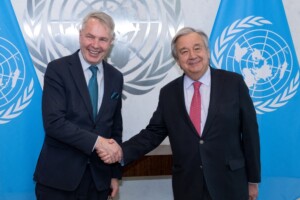

 and then
and then